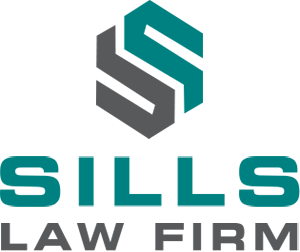Do You Believe Your Legal Matter Was Not Handled Properly?
Just because the word “guilty” came out of the judge’s mouth, doesn’t necessarily mean the case is done. In some circumstances, a defendant may seek an appeal from a higher court to reverse the conviction. If you believe that your case was mishandled, there still may be options available to you through the appeals process. Whether your issue revolves around a criminal court decision, the suspension of your driver’s license by the DMV, or some type of administrative decision.
If an appeal is won, the defendant may either obtain a new trial or overturn the jury’s guilty verdict and end the case entirely. Either the conviction or sentence can be challenged in an appeal. Our Connecticut appeal lawyers at The Sills Law Firm can review your case during a free consultation.
We routinely handle appeals for:
TO BEGIN FILING FOR AN APPEAL, CALL US TODAY AT (860) 524-8118.
Steps in the Appeals Process
If you decide to file an appeal, the first step you will need to take is to file a Notice of Appeal. This document notifies the state that you are intending to file an appeal. Along with this notice, you will also file a preliminary statement of issues that will be raised in your briefs, in addition to several other documents. You will then have the appeal served on the other party. After this, you will provide the trial court clerk with a record of all testimony, evidence, and anything else that happened at the trial court level. A briefing schedule will then be issued.
Reasons to Appeal a Criminal Case
In order for an appellate court to hear an appeal from a lower court, the defendant must show that a substantial or material error was made at the initial trial. By contrast, mistakes that do not have an impact on the defendant’s case are considered harmless.
The following are the common reasons that are eligible for appeal:
- The lower court made a plain error –This type of error has a negative impact on the defendant’s rights. If a defendant wishes to appeal a legal error committed during the trial, the defendant’s lawyer needs to have objected to the error on court records. If the attorney doesn’t object, the legal error is waived.
- Improper jury instructions – If a judge fails to advise the jury on how to correctly apply the law and disclose all relevant laws to reach a verdict, a defendant can appeal the conviction.
- Lack of sufficient evidence – In order to obtain a guilty verdict, the evidence must prove that a defendant was guilty beyond a reasonable doubt. If there was insufficient evidence presented in the case that led to a guilty verdict, an appeal can be filed by the defendant.
- Exclusion of evidence or improper admission – Prior to the trial, a hearing is held to figure out which forms of evidence are permitted and prohibited to be used when the trial commences. If a judge unjustifiably excludes valid evidence or grants improper evidence to be used at trial—which causes the opposing lawyer to object—this could be considered a legal error that can be brought up in an appeal.
- Misconduct from jurors – If the jury conducted itself in an inappropriate manner during the trial or deliberations, a conviction may be appealed. Improper communications with lawyers or witnesses, as well as drug or alcohol use, are considered forms of jury misconduct.
- Ineffective legal counsel – If the defendant believes that they were not adequately represented by their attorney, they can seek an appeal. Defendants must prove that the conduct of a lawyer doesn’t meet the standards of a reasonable attorney.
There are more grounds for an appeal, meaning more ways for a trial to go wrong. At The Sills Law Firm, we are committed to protecting your rights and helping you avoid conviction at all costs.
Speak with Our Connecticut Appeal Attorneys About Your Options
Once all briefs have been filed, the court will issue a schedule for oral argument. After oral argument, the Appellate Court will then issue a written decision. If that decision is not to your satisfaction, you do have the opportunity to ask the Connecticut Supreme Court to review the decision, and the appellate process will begin again. Our firm can help you better understand your options and assist you with the appeal process.
CONTACT OUR OFFICE FOR HIGH-QUALITY LEGAL GUIDANCE.

